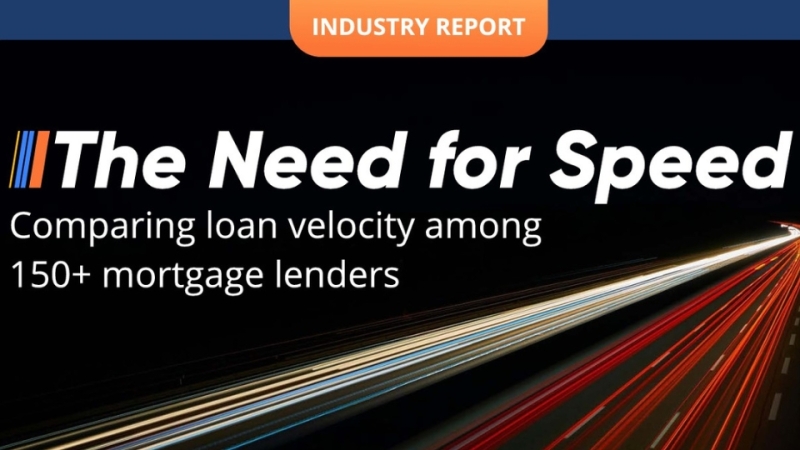Advertisement
FHA Insider: BIG FHA Updates ... “NegEQ” Refi, CLTVs, MIPs and Credit Scores

The end of the summer was a big one for the Federal Housing Administration (FHA) and I have compiled a list of the highlights of each FHA update. The combined loan-to-value (CLTV) ratio, mortgage insurance premium (MIP) and credit score changes continue the disturbing trend of FHA becoming more and more like Fannie Mae and Freddie Mac. I noticed this philosophical shift once Commissioner David H. Stevens took office in July of 2009 and observed that in many press releases and U.S. Department of Housing & Urban Development (HUD) testimony, there was reference to future changes that would strengthen FHA and bring FHA more in line with the other agencies. Although I am all for making FHA stronger, I fear that many of the policy changes over the last year are moving FHA away from its original mission of helping the average creditworthy American achieve homeownership.
Here are the points to remember about these changes:
FHA’s “NegEQ” refinance program
On Aug. 6, 2010, FHA published Mortgagee Letter 10-23 which details the refinance program available to homeowners who owe more than the value of their homes. Although HUD estimates an economic benefit up to $35 billion, the success will be determined by the current lien holders who must participate by writing down the mortgages at least 10 percent. The program is for loans whose case numbers are issued on Sept. 7, 2010 and closed by Dec. 31, 2012.
Here are eight things you need to know about this program:
1. The loan to be paid off cannot be an FHA loan and must be current.
2. The max loan-to-value (LTV) ratio is 97.75 percent and the max CLTV is 115 percent.
3. Second lien holders must subordinate to the new first.
4. Loans that receive an “accept/approve” by TOTAL do not require a review of income or credit history.
5. Loans that receive a “Refer” by TOTAL and/or manually underwritten files, the ratios cannot exceed 31/50 (31 percent includes both first and seconds) and must have acceptable credit history with a minimum credit score of 500.
6. Lenders cannot use premium pricing to pay off debt to qualify borrower or bring mortgage current for the borrower.
7. The performance of loans refinanced under the NegEQ refinance will not be included in the lender’s compare ratio, but will have separate criteria in Neighborhood Watch.
8. The borrower must occupy the subject property.
Unlimited CLTVs eliminated for refinance transactions
This update from Mortgagee Letter 10-24 contains changes to the new maximum CLTV limits for refinance transactions which will be effective for case numbers assigned on or after Sept. 7, 2010. The combined amount of the FHA-insured first mortgage and any subordinate lien may not exceed the applicable FHA LTV and the geographical maximum mortgage amount (does not apply to streamline refinance transactions).
Here are the four items from this Mortgagee Letter that you need to know about:
1. Rate and term (or no cash-out) refinances 97.75 percent.
2. Refinances for borrowers in negative equity positions* 115 percent.
3. FHA-to-FHA streamline refinances with or without appraisals 125 percent.
4. Cash-out refinances 85 percent.
*This refinance option is only available through Dec. 31, 2012. See Mortgagee Letter 2010-23 for more information.
FHA MIP changes now official
With the passing of HR 5981 and the resulting Public Law 111-229, FHA was given authority to change the amount charged to borrowers for both the upfront and the annual premiums. These changes as outlined in Mortgagee Letter 10-28, are effective for all case numbers assigned on or after Oct. 4, 2010.
Here are the six things you need to know about these changes:
1. The upfront premium is now one percent for all standard FHA programs.
2. The annual premium is now 0.90percent for LTVs greater than 95 percent on 30-year loans.
3. The annual premium is now 0.85 percent for LTVs equal to or less than 95 percent on 30-year loans.
4. The annual premium is now 0.25 percent for LTVs greater than 90 percent on 15-year loans.
5. The annual premium is now 0.00 percent for LTVs equal to or less than 90 percent on 15-year loans.
6. These premiums apply to purchases, regular refinances and streamlines.
Please note that this new law also gives FHA the authority to raise the annual premium at will up to 1.5 percent for LTVs at or below 95 percent and 1.55 percent for LTVs more than 95 percent.
FHA implements minimum credit scores
Mortgagee Letter 10-29 establishes minimum credit scoring requirements for all standard FHA programs* and is effective for case numbers assigned on or after Oct. 4, 2010.
Here are the four things you need to know about these changes:
1. Borrowers with a minimum credit score at or above 580 are eligible for maximum financing.
2. Borrowers with a minimum credit score between 500 and 579 are limited to a 90 percent LTV.
3. Borrowers with a minimum credit score of less than 500 are not eligible for FHA-insured mortgage financing.
4. Borrowers with a non-traditional credit history or insufficient credit are eligible for maximum, but must meet the underwriting guidance in HUD 4155.1 4.C.3.
*Please note that these new requirements do not apply to: Title I, Home Equity Conversion Mortgages; HOPE for Homeowners; Section 247; Section 248; Section 223(e), Section 238.
Go FHA!
Jeff Mifsud founded Southfield, Mich.-based Mortgage Seminars LLC in 2004, has been an FHA originator for 13 years, is a contributor to LoanToolbox.com and is a former FHA underwriter. Jeff may be reached at (877) 342-9100 or e-mail [email protected].
About the author





